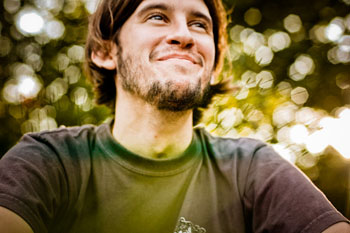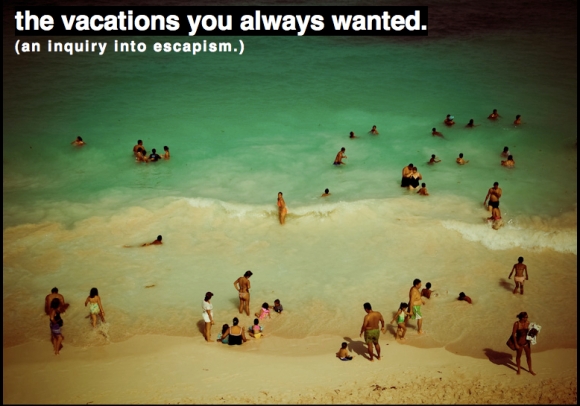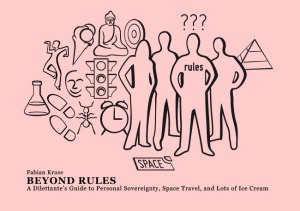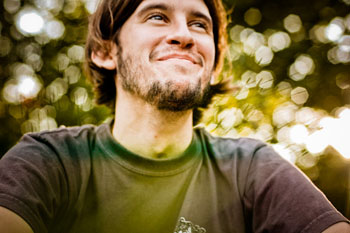 I’m delighted to introduce you to Fabian Kruse aka The Friendly Anarchist. Despite never having met in person, I’ve been good friends with Fabian since we both took part in an online course run by Jonathan Mead called Paid to Exist, which gives an overview of how Jonathan was able to quit his job and run his own online business. A small group of us who were on the course have kept in touch through Skype, our blogs, social media and email, and it’s been fascinating to see how things have progressed for each of us since.
I’m delighted to introduce you to Fabian Kruse aka The Friendly Anarchist. Despite never having met in person, I’ve been good friends with Fabian since we both took part in an online course run by Jonathan Mead called Paid to Exist, which gives an overview of how Jonathan was able to quit his job and run his own online business. A small group of us who were on the course have kept in touch through Skype, our blogs, social media and email, and it’s been fascinating to see how things have progressed for each of us since.
In December of last year Fabian and I supported each other in getting our key creative projects at the time off the ground (or should that be nagged each other?)– for me it was this blog, and for him it was his excellent new book Beyond Rules: A Dilettante’s Guide to Personal Sovereignty, Space Travel, and Lots of Ice Cream which he has generously made available for free download.
Fabian has a unique, thoughtful angle on life, inspired partly by his travels, and he’s a superb photographer. I particularly like his emphasis on tempo guisto, meaning to do things at a pace which suits your own inner tempo. Now if I’m honest with myself that’s pretty much how I naturally do things too, no matter how much I try and make myself stick to a strict schedule, so Fabian’s philosophy on life makes me feel a lot better about myself!
Please can you describe who you are and what you are up to at the moment?
I am a writer, thinker, artist, activist and idler with a background in political science. I am also a slow-pace long-term traveller. Currently, I am living in Cologne, Germany, where I finished writing and editing my first book, Beyond Rules.
I like the sun, friendly people, good food, good rum, and am interested in the internet, micropreneurship, friendly anarchism, and lonely beaches.
Did you always know what you wanted to do (creatively) or has it been a process of trial and error to get to the point you’re at now? If it’s the latter, how did you decide what to focus on?
I describe myself as deliberately dilettantish, because I enjoy the trial and error process so much that I would not want to miss it.
This is noticeable, when it comes to means of creative expression and technique: I am currently mostly writing, but cannot let go of – both analogue and digital, serious and from-the-hip style – photography. I also enjoy painting and doodling, and am very interested in art in the public space. Then, there’s typography and print design, screen-printing, and graffiti that call my attention. I even once started making electronic music, but I admittedly suck at it.

Short answer to your question: I decided not to focus, even though I agree that it’s important to practice a lot if you want to become really good at something. Still, I believe there’s more than one thing we can do in life, and I prefer to become “pretty good” in many things, instead of being “stellar” in just a single one.
Have you organised your life in a certain way/made sacrifices in order to continue to be creative?
I decided against pursuing an office career and having lots of money.
This was quite a challenge, because I was raised in the old economy, focusing on stable jobs, secure retirement savings, et cetera.
Still, I never really bought into that approach, because I felt that life should be lived here and now, opposed to postponing it endlessly. Too many people die waiting for the future, or they become sick or simply old and tired, and won’t be able to move freely anymore and make their dreams come true once they have the money.
Changes became more concrete for me after I started traveling on my own, mostly in Latin America. Once you’re on the road and in a different culture, you see that other approaches to life can work, based more on solidarity and freedom than on competition and restraint.
I am dreaming of creating a very basic community fund with friends and acquaintances in order to free ourselves from the broken pension system and create working alternatives at a lower level. I understand that most people need some safety guarantees, but I suppose there are better ways to do it than what’s the standard today.

How do you define success?
I believe success is driving a Porsche and living in an apartment overseeing Central Park in NYC.
I also want a trophy wife that gets plastic surgery every couple of months.
And a learjet.
(Of course, I’m just kidding. My real take on success can be found in chapter 5 of Beyond Rules. I’m serious about the latter, though. I’d *love* to have a learjet. Have you seen that last James Bond movie where they fly from some old runway in Haiti directly to the opera in Bregenz, Austria? Amazing!)
What in your opinion are the positives and negatives of technology when it comes to both creating and promoting your work?
The negatives: I get lost in it sometimes. Too much information and input isn’t always a good thing. So I think you have to identify that fine red line between inspiration and information overload.
The positives: Dictionaries, encyclopedias, how-tos and tutorials right at hand; the ability to get in touch with similar-minded people anywhere in the world; the end of the gatekeeper culture (even though there is a new one emerging, and we have to stop that!).
Plus, it’s helping me to earn a living without being in an office, and I definitely love that.
Do you collaborate with others or prefer to work alone, and why?
I am used to working last-minute, *and* I’m a recovering perfectionist, so these two factors don’t combine well with many people.
On the other hand, it can work pretty fine; it’s really a compatibility question, and one of creating clear milestones and deliverables for everybody involved.
It also depends a lot on the matter. Photography, for example, is something very different from writing: When I am shooting for my own pleasure, I’ll often bring people along (or just shoot during meet-ups and travels), and this will always influence the result. In portrait sessions, I’ll of course try to include ideas and wishes from the clients as well.
In painting, I am sometimes working together with my wife… so there’s always some give and take, and it leads to interesting results.
When it comes to text, though, I am often unwilling to collaborate, at least during the process of creation. I prefer to write alone, discussing content either before starting, or once an advanced editing stage is reached. If you compromise too much, you will water everything down to the point it gets boring and mediocre.
Is community important to you – either local or online – and if so, why?
It’s key. Peers are so important. They will critique me, they will motivate me, they will inspire me, they will kick my ass, they will laugh at me or with me. Key, key, key, key, key!
It’s something I miss during my travels at times, and it’s probably also a reason why I end up doing so many different things. For example, I met a bunch of genius screen-printers in San Salvador, so they taught me their technique, and we just met up several times to drink and print; a thing I wouldn’t have done on my own.
Or the whole extreme metal subculture – I met those guys in the Caribbean. Incredible, it’s like 35 degrees and the sun shines 365 days a year, and they dress in black leather and sing about the eternal winter. So I simply had to document them, and at the same time I could help them out with promotional photos.

Community also matters online, even though I am a bad forum user. I’ll sometimes be around for weeks at a daily basis, and then get lost for a couple of months because other things in life are happening. Old-school web user that I am, I still prefer staying in touch by email, although I enjoy Twitter quite a bit, too. Changeblogger (created by Raam Dev) is another new forum I’m interested in.
I’ve always found consistency difficult in terms of learning a craft and then practicing it regularly – is this something you’ve mastered and do you have any advice on how to maintain this?
The only solution seems to be doing something every single day, no matter what.
I either write a text, or take some photos, or do something else, and, surprisingly, it helps.
My main advice would be to lower the entry barriers: Just decide to work on your creative stuff for 10 minutes each day. Or to write one sentence. Often, once you’re at it, you will be able to do much more than that, and you will see the progress after a couple of weeks or months. I think it’s true that most people overestimate what they can achieve in a day, and underestimate what they can achieve in a year. But in order for the year to be successful, at least a small action is required every single day.
Apart from that, of course, I am not very consistent in what I do – and I don’t think this is necessary for every creative person, either. It even can become a limitation that’s merely imposed by economic considerations. While that is one possible way to pursue your art, it’s certainly not the only one, and there have been some very successful people (like Gerhard Richter) doing otherwise.
Cheers and thank you, Milo! 🙂
And the same to you Fabian! If you enjoyed that and found Fabian’s outlook on life of interest, please say hello in the comments. Meanwhile don’t forget to have a read of his book.


10 replies on “Fabian Kruse (The Friendly Anarchist)”
Hey Milo,
Great post, extremely inspiring!
And thanks to you and Fabian for access to the book, gonna find a nice spot in the sun and give it a read right now 🙂
Chat soon,
Ricardo
LikeLike
Hi Ricardo, many thanks for commenting, it’s great to hear from you! Glad you enjoyed the post and hope you enjoy Fabian’s book too, there’s some really interesting stuff in there.
LikeLike
Milo, thanks a lot for this interview! Big fun and a great honor to be a part of your series! 🙂
LikeLike
Pleasure Fabian, thanks for agreeing to take part!
LikeLike
Yaaay!! Excellent to see an interview with Fabian Milo – thanks for doing it!
Hopefully this interview and Fabian’s writings inspire people that you don’t need to have some specific action plan or business idea to begin. Learn as you go along. Enjoy the creative process (both ups and downs). Have fun. Enjoy life now b/c who knows if you’ll be here tomorrow.
Peace,
Nate
LikeLike
Exactly Nate. I definitely need this reminder, as I often get caught up in trying to plan things out and then being disappointed in myself when I fail to follow through. We all need to beat ourselves up a little less I think! Many thanks for the comment 🙂
LikeLike
Congratulations guys, great to see you both thriving. Thanks for a fine read indeed. And a shout out to the old gang. 🙂
Cheers…
LikeLike
Thanks Jeb, glad you enjoyed the interview, it’s great to hear from you too. How to Matter is looking great!
LikeLike
Milo, you will be so surprised to hear that I especially enjoyed this one. Thanks for the read!
LikeLike
I thought you might!
LikeLike